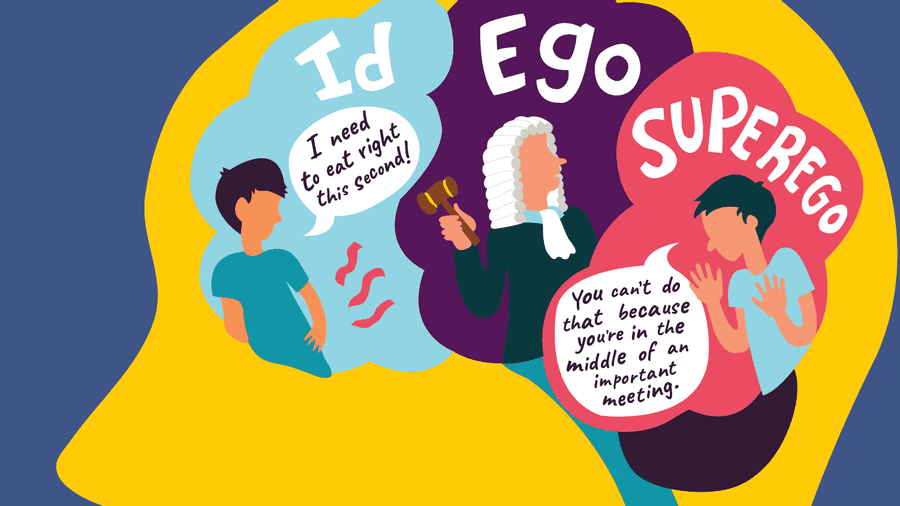The Ego In Psychology
Psychology defines ego as a neutral concept which is one of many aspects of ourselves. The ego is then simply one’s individuality, the thoughts, behaviours and experiences that make a person unique. It is the part that perceives reality, making sense of all the information around us.
Sigmund Freud divided the human psyche into three parts: the id, the ego and the superego. The id is the primal, wild part of our mind, the ego is the ‘conscious mediator’, the rational part of our mind making all the decisions, and the superego is the conscience.
129
640 reads
CURATED FROM
IDEAS CURATED BY
The idea is part of this collection:
Learn more about psychology with this collection
How to apply new knowledge in everyday life
Why continuous learning is important
How to find and evaluate sources of knowledge
Related collections
Similar ideas to The Ego In Psychology
The Ego And The Reality Principle
According to the original psychoanalyst, Sigmund Freud, our ego is part of our personality that is between the id (our primal, animalistic instincts), our superego (the mature personality formed by the kind of upbringing and social influences in one’s life) and reality.
T...
The Psychoanalytic School of Thought
Psychoanalysis emphasises the influence of the unconscious mind on behaviour.
Sigmund Freud found this school of thought. He believed that the mind was composed of three elements that interacted to create complex human behaviours:
- Id consists of p...
2. Psychodynamic Theories
Psychodynamic theories, popularized by Sigmund Freud, emphasize the role of unconscious processes and early childhood experiences in shaping personality. According to Freud, personality is composed of three parts: the id, ego, and superego, which interact to produce behavior.
Read & Learn
20x Faster
without
deepstash
with
deepstash
with
deepstash
Personalized microlearning
—
100+ Learning Journeys
—
Access to 200,000+ ideas
—
Access to the mobile app
—
Unlimited idea saving
—
—
Unlimited history
—
—
Unlimited listening to ideas
—
—
Downloading & offline access
—
—
Supercharge your mind with one idea per day
Enter your email and spend 1 minute every day to learn something new.
I agree to receive email updates
